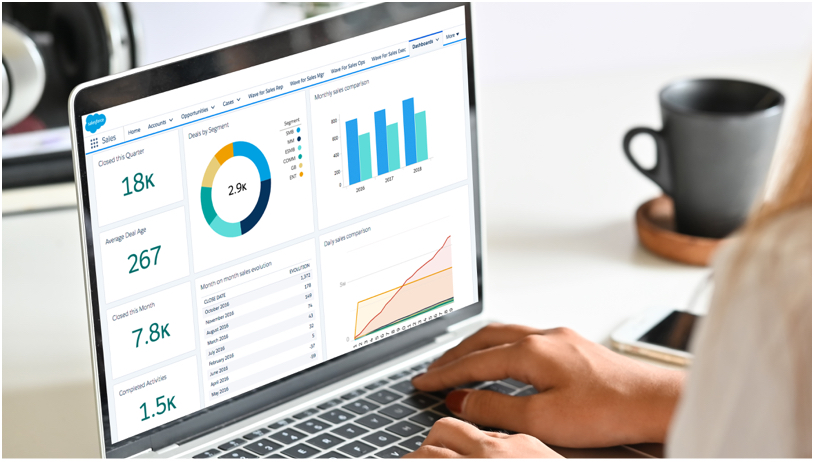What does a CRM system do?
By collecting customer and prospect information in a way that helps you create closer relationships with them and expand your business faster, a CRM solution may help you locate new clients, win their business, and keep them pleased. CRM systems begin by gathering information from a customer's website, email, phone, social media, and other sources and channels. It may also automatically bring in other data, such as current company activity news, and it can save personal information, such as a client's communication preferences. The CRM tool aggregates this data to provide you with a comprehensive record of individuals and businesses.
Benefits of CRM software
Boost sales
A customer relationship management system (CRM) can assist you in identifying, nurturing, and following up on high-quality prospects. This means you won't waste time and money on a lead who is unlikely to become a customer. When combined with a shortened sales cycle, you can efficiently guide more prospects and convert them into delighted clients in less time.
Efficient business process
Define and implement effective business processes that help your team stay busy. A CRM can assist you in ensuring that standards are adhered to while processes are carried out. By automating common processes, you can ensure that your sales team's time is spent completing transactions rather than doing monotonous duties.
Tactical decision-making
Accurate data from across your organization keeps your decision-makers informed, allowing them to make smarter decisions in response to market changes. Detailed reports will show you how well your teams are doing and where they may improve.
Data security and compliance
Your customer data is safe at your vendor's data centers, which are protected by top-of-the-line physical and digital security measures.
Mobile accessibility
Your team will have access to crucial CRM data no matter where they are with a CRM that includes a mobile app. A sales rep in the field can use their mobile app to look up information about local customers, drop by for a meeting, and instantly update everyone else on any new information by logging it in the CRM.
Customer satisfaction
A CRM provides your team with all of a customer's past data, as well as information on comparable issues that others have encountered. A unified data repository aids your staff in promptly resolving client inquiries and ensuring that they are satisfied.
Why does your business need CRM Software?
If you're having trouble keeping track of sales, marketing, and customer service, it's time to invest in smart, all-encompassing business software. Look for these warning indicators if you're on the fence about implementing a Customer Relationship Management system:
Lack of centralization
When your customer data is scattered over Excel sheets, business cards, and notes taken during meetings with the customer, it's difficult to make key judgments. It takes far too much time and effort to compile and interpret the data.
Lack of knowledge
This is the first indicator's derivative. Salespeople will find it tough to maintain track of every detail as your customer base expands if you don't have a centralized repository for your customer data.
Communication breakdown
Marketing, who nurtures the lead, and Sales, who closes the deal, must work together. Because neither party is aware of what the other is doing, this lack of information flow often hinders both teams' performance.
Inability to close deals on the move
It's tough for salespeople out in the field to keep everyone informed about the status of a deal or send out paperwork like sales orders and invoices.
Turnover costs time and money
When salespeople leave your organization, they take their client relationships with them. Your organization needs to devote time and resources to educating replacements and familiarizing them with client preferences.
Poor customer satisfaction
It's difficult to detect patterns and personalize client encounters when data is scattered. As a result, all consumers are treated the same, and you risk losing customers to your competitors who can provide a superior experience.



-1748399375.png)

-1742456856.png)

 (19)-1723771883.png)
 (17)-1721953744.png)